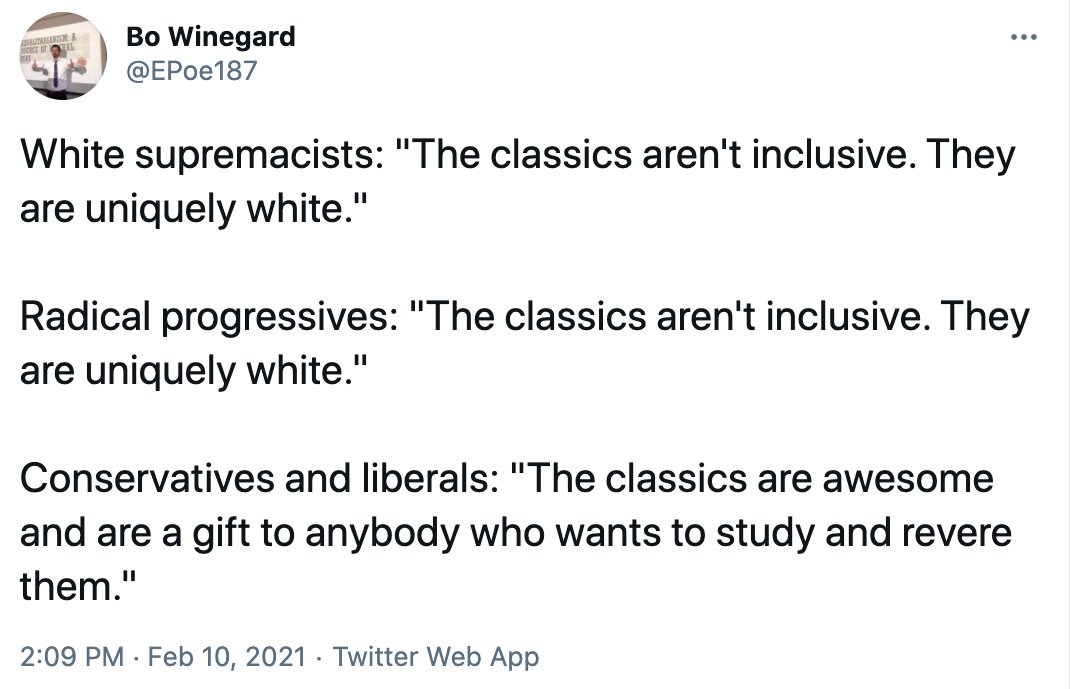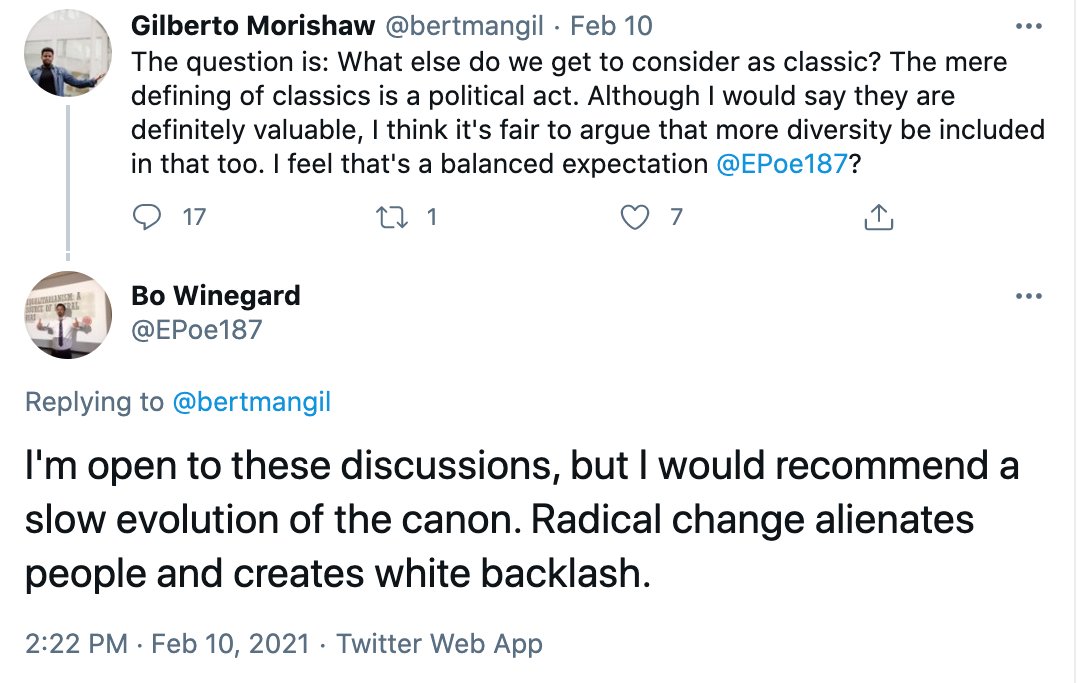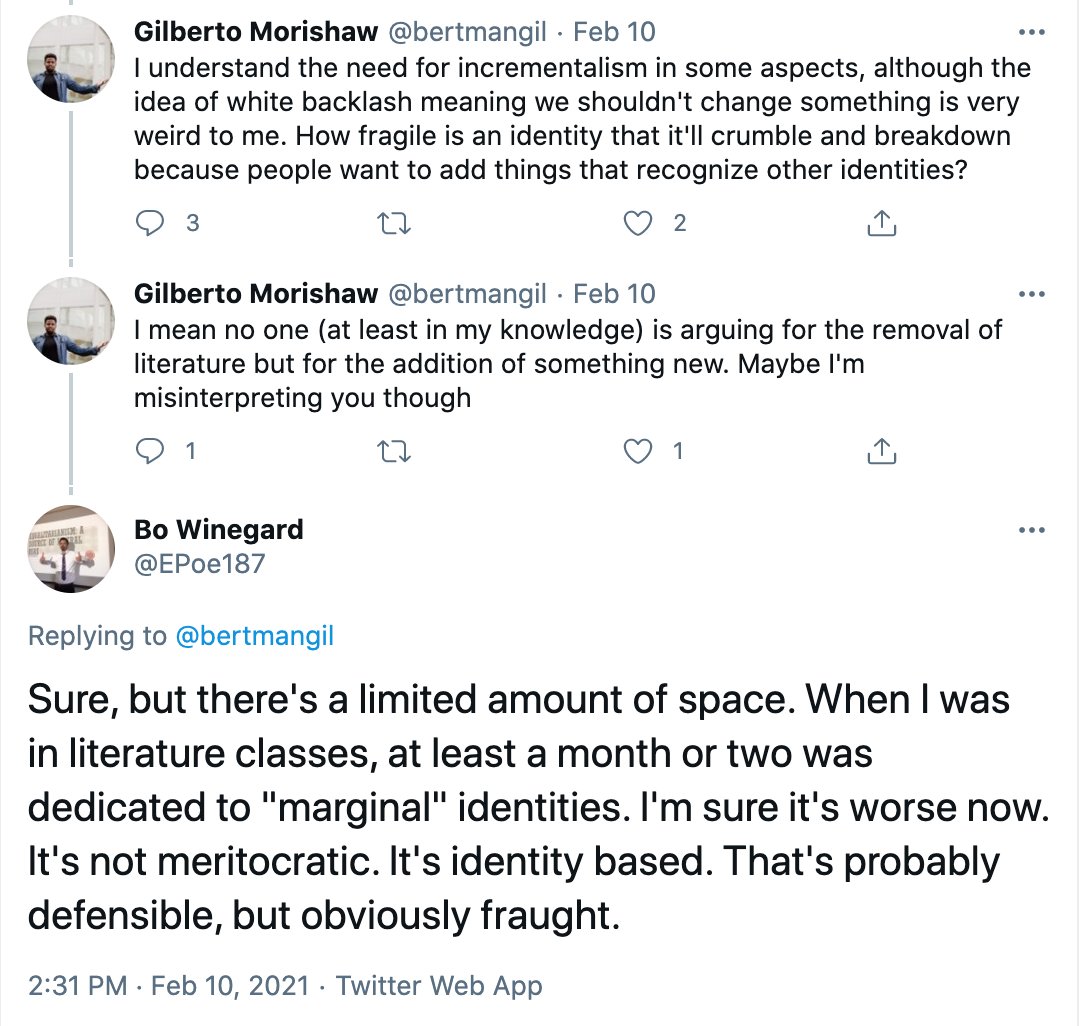
Enjoy this slow-motion shell game, wherein the whiteness of the canon is obfuscated only so that it can be insisted upon as the only *safe* option... which is somehow also *meritocratic* 





Shorter Bo Winegard:
- extremists agree that the canon is white, while moderates just think it's good
- the canon moderates like is also white, and if you change it there will be white backlash
- this one time we wedged in a couple nonwhite authors but that wasn't meritocracy
- extremists agree that the canon is white, while moderates just think it's good
- the canon moderates like is also white, and if you change it there will be white backlash
- this one time we wedged in a couple nonwhite authors but that wasn't meritocracy
Note: this should be read while the Curb Your Enthusiasm music plays in the background
anyway this is a perfect example of the lazy but common use of "meritocracy" as a synonym for "status quo," arguably its chief function in current discourse
as a Quillette reader and a connoisseur of fine arguments, I nod my head sagely while running flat-out to keep up with the goalposts
it's not in the top three things wrong with Bo's argument, but it's also truly weird that a purported proponent of critical thinking should just take it for granted that you read the classics in order to "revere" them
an idea of Western Civ concocted ~100 years ago really is a surrogate God for some of these guys
• • •
Missing some Tweet in this thread? You can try to
force a refresh


